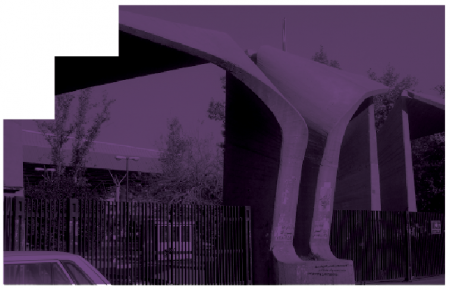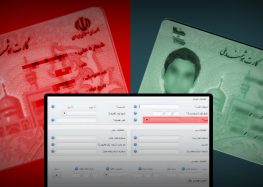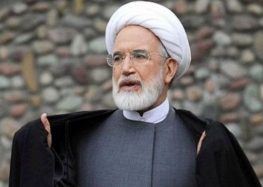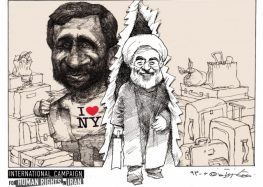Ministry of Science, Research, and Technology
 Denying women access to fields of study in universities
Denying women access to fields of study in universities
Academic censorship and dismissal of faculty
Starred students, education bans
Student organizations
Imprisoned students
Recommendations
Denying women access to fields of study in universities
The Ministry of Science has increasingly banned female students from education in arbitrarily chosen disciplines. Whereas only two areas of study had been closed to women in the prior academic year, Mehr News Agency reported that in the 2012-2013 academic year, 36 universities banned admissions for women in 77 academic areas. In addition, restrictions on the number of women enrolling in another 241 majors were put in place in 2012.
This trend has continued: in the current academic year, Isfahan Technical University has refused to admit female students into seven different areas of study.
The Ministry of Science and Technology, responsible for conducting university entrance examinations and admissions, continues to admit men and women according to pre-defined quotas in each area of study. In 2013, in many disciplines and areas of study, the quota for male students is considerably higher than that for female students.
Overall, during the last eight years there has been a consistent policy in place to gradually reduce female enrollment in universities, which include policies removing preferential quotas that encourage female enrollment, instituting preferential male quotas, and excluding female enrollment in certain areas.[1]
Academic censorship and dismissal of faculty
The Ministry of Science has been participating in an ongoing assault on social sciences and humanities curricula and a purge of independent faculty in recent years, in an effort to cleanse universities of “un-Islamic” concepts.[2]
In an explicit statement justifying the removal of faculty members from their positions due to their political viewpoints, then–Minister Kamran Daneshjoo said in March 2010 that faculty members who do not “share the regime’s direction,” and who do not have “practical commitment to velayat-e faqih [rule of the Supreme Leader]” will be dismissed. “We do not need some faculty members whose tendencies and actions are not in coordination with the Islamic Republic regime,” stated Daneshjoo.
Registered statistics indicate that over the past eight years, at least 45 distinguished faculty members of Iranian universities have either received dismissal orders or have faced forced retirement.
Starred students, education bans
Through close coordination between its Ministries of Intelligence and Science, the government of Iran has systematically targeted university campuses to suppress social and political activism, as well as to exclude Baha’i students due to their religious beliefs over the last eight years. Hundreds of students have been barred from higher education through this process. In 2010, the International Campaign for Human Rights in Iran compiled a list of 217 students who were denied their right to education. The true numbers are believed to be much higher, as many targeted students have preferred to remain silent, fearing further persecution, or hoping that they can reverse their education bans by giving written guarantees to cease future activism.
In June of this year, three student groups presented a comprehensive report of eight years of suppression and education ban of university students. The report, prepared by Daneshjoo News Website, the Human Rights Commission of Daftar-e Tahkim-e Vahdat student organization, and the Right to Education Campaign, claims that more than one thousand cases of education ban have taken place over the past eight years.
The Ministry of Science uses different methods for banning student activists from continuing their education. For example, they tamper with the test results of students who participated in the Graduate Admission Examination. In rare situations where Baha’i students were able to pass the nationwide University Entrance Examination, immediately after finding out their religion, the Ministry has dismissed the students.
One of the first policies enforced by the Ministry of Science during Mahmoud Ahmadinejad’s first term was to crack down on independent student organizations, especially the Islamic Student Associations and the Daftar-e Tahkim-e Vahdat. Daftar-e Tahkim-e Vahdat was banned from universities and the Ministry of Science did not allow the organization to hold meetings, elections, or activities inside university campuses. During this period, the few student associations that continued their activities, such as the Tehran Polytechnic Islamic Students Association, faced arrests and the detention of their active members. According to Daftar-e Tahkim-e Vahdat, between 2009 and 2013, more than 32 cases of harassment and intimidation of members of student organizations were registered. In addition, hundreds of students from student guild councils and cultural and artistic centers were summoned to disciplinary committees during these years and expelled from universities for one to several semesters for any activities not approved by the authorities.
Since June 2009, many of the political prisoners in Iran have been student activists. At present, at least 29 students remain in prison for their activism. Among the dozens of student activists currently inside Iranian prisons, students such as Majid Dorri, Zia Nabavi, Bahareh Hedayat, and Majid Tavakoli, who are serving prison sentences ranging from four to ten years, have not been allowed one day of furlough, despite its requirement under Iranian law.
Recommendations for the Ministry of Science, Research, and Technology:
- Revoke all discriminatory policies which have affected women’s admission to universities, and open all fields of academic study to female students.
- Reinstate faculty members who were dismissed for ideological reasons. End the ideological purge of academia.
- Reinstate banned students in universities. Allow Baha’i students to attend university.
- Allow peaceful assembly and association by students. Reinstate all independent student organizations, including the Islamic Student Associations and the Daftar-e Tahkim-e Vahdat. Stop harassing student activists.
- Release all students imprisoned for student activism. Stop arresting students for student activism.
Download the full report here (PDF)






